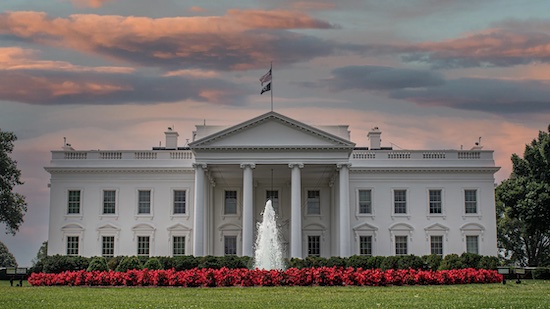
Following the re-election of former president Donald Trump on Tuesday, Nov. 5, the University has been evaluating the potential future impacts of a Trump administration on international and undocumented students. Much uncertainty surrounds the possible changes to American immigration policy that could be enacted by the Trump administration beginning Jan. 20, 2025.
The University has previously been worried about the unpredictability of president-elect Trump’s policies.
“The threat that seems to be most immediate is against immigrants and refugees, some of whom are in Middletown, some of whom are at Wesleyan, and that’s what I’m most concerned about initially,” President Michael Roth ’78 said. “But thereto how exactly the policies will be implemented and how the states will have a say in those policies, if they have a say, and then how institutions might protect the most vulnerable students, faculty, and staff and their families, that all remains to be seen. That is definitely on our mind here, the minds of the people who are running this university.”
The Trump administration could also undermine the availability of student visas, which would affect the ability of many international students to attend the University. International students constitute roughly 10% of the student body at the University. During his first term from 2017 to 2021, particularly during the COVID-19 pandemic, Trump targeted temporary work visas such as the H1-B visa, which allows highly-skilled foreign workers to be employed in the United States.
The Office of International Student Affairs (OISA) has also been concerned about sweeping policy changes that could occur soon after Trump’s inauguration.
“With the presidential inauguration happening on Monday, January 20, 2025, and uncertainties around President-elect Donald Trump’s plans for immigration-related policy, the safest way to avoid difficulty re-entering the country is to be physically present in the U.S. on January 19th and the days thereafter of the spring semester,” an email sent Monday, Nov. 18, to international students studying under the F-1 visa read.
The OISA has been working to review immigration policies and keep track of potential changes, in anticipation of the new Trump administration.
“At OISA, our professional staff of designated school officials (DSOs) use various resources to stay abreast of federal changes impacting international students, which can come through different government agencies, including the Department of Homeland Security (specifically the Student and Exchange Visitor Program – SEVP), United States Citizenship and Immigration Services (USCIS), the Department of State (DoS), and U.S. Customs and Border Protection (CBP),” OISA Director Morgan Keller wrote in an email to The Argus. “We often consult, benchmark with, and learn from DSOs at other institutions in our region, NAFSA [a global association of international educators] Region XI.”
In addition to the president-elect’s possible restrictions on legal immigration, University administrators have also expressed dismay towards Trump’s proposed mass deportation program.
“The mass deportations promised by president-elect Trump threaten our students who may be undocumented and are a cause of great concern to many in our community,” Roth wrote in a blog post after the election.
This sentiment has echoed conversations in 2016 surrounding the announced “sanctuary campus” status of the University. In response, the administration reiterated its policy that it will not voluntarily work with the federal government to deport any members of the Wesleyan community.
“We are confident that we can do what we’ve done before, which is to say that we will not willingly cooperate with any efforts to arrest or deport members of the Wesleyan community because of their immigration status,” Roth said. “What that means is that the government will need subpoenas to enforce any actions on campus, and we would have to obey those, someone will have to obey those at the university. But we will do our best to protect those members of our community against federal overreach, and that will include all legal avenues, and we would work in concert with other colleges and universities that are similarly threatened.”
However, Roth clarified that the University must comply with immigration policies if no other legal recourse is available.
“We won’t do anything illegal to protect people who may be targeted because of their immigration status,” Roth said.
Roth has been warning of the effects of Trump’s immigration policies in American academia through various publications, participating in interviews on the subject with the New York Times and authoring an op-ed in Slate Magazine.
“His nasty nativism is antithetical to the recruitment of international students, a practice that has been a boon to higher education and to the world,” Roth wrote. “We must not be neutral about this.”
Students at the University have also expressed anxiety over the possibilities of Trump’s presidency encouraging antagonistic rhetoric over immigration.
“What I worry is that his anti-immigration policy may imply a hostility towards people who don’t belong to that white Christian demographic, and I fear that the country, because of that, would have an increased hostility towards students from other countries,” Hudson Wang ’26, an F-1 international student from China, said. “I’m not particularly concerned on my personal level because I think I am in a school that’s very privileged.”
Although the Trump administration’s immigration policies remain unclear, the University reaffirmed its promise to protect and advise international students through this tumultuous period.
“We want all international students at Wesleyan to know that we care about them, we value and admire them, and we are always here for them throughout their experience at the University,” Keller wrote.
Correction: An earlier version of this article specified the wrong years for President Trump’s previous presidency.
Spencer Landers can be reached at sklanders@wesleyan.edu.



Leave a Reply